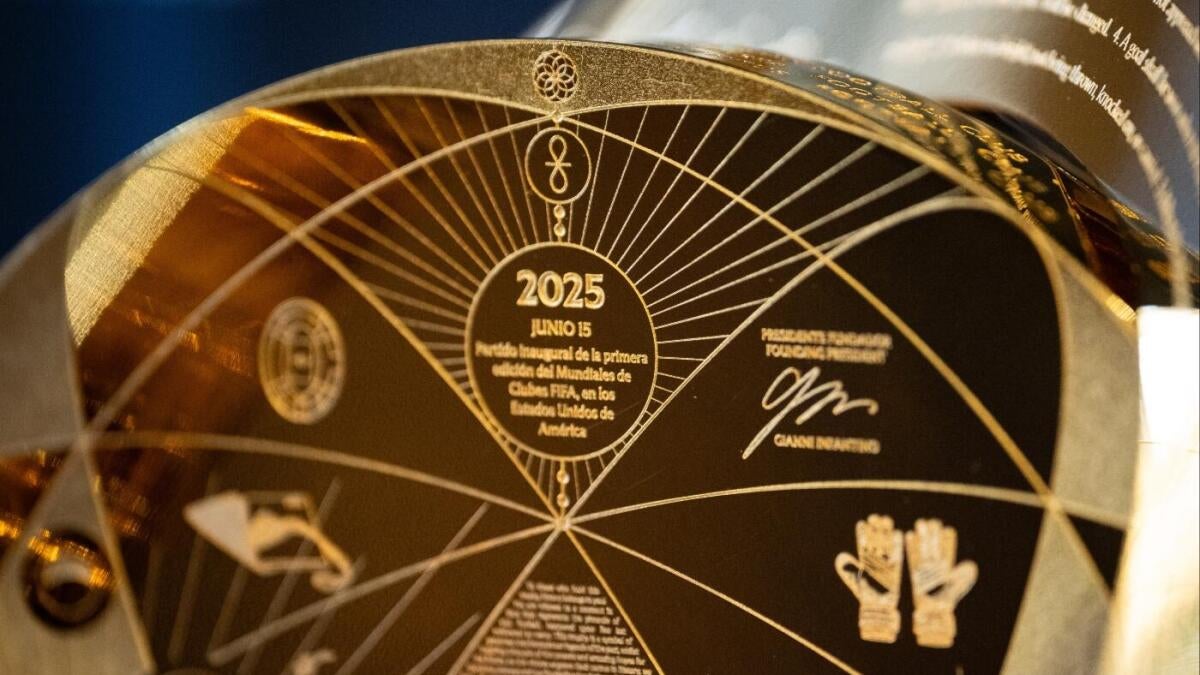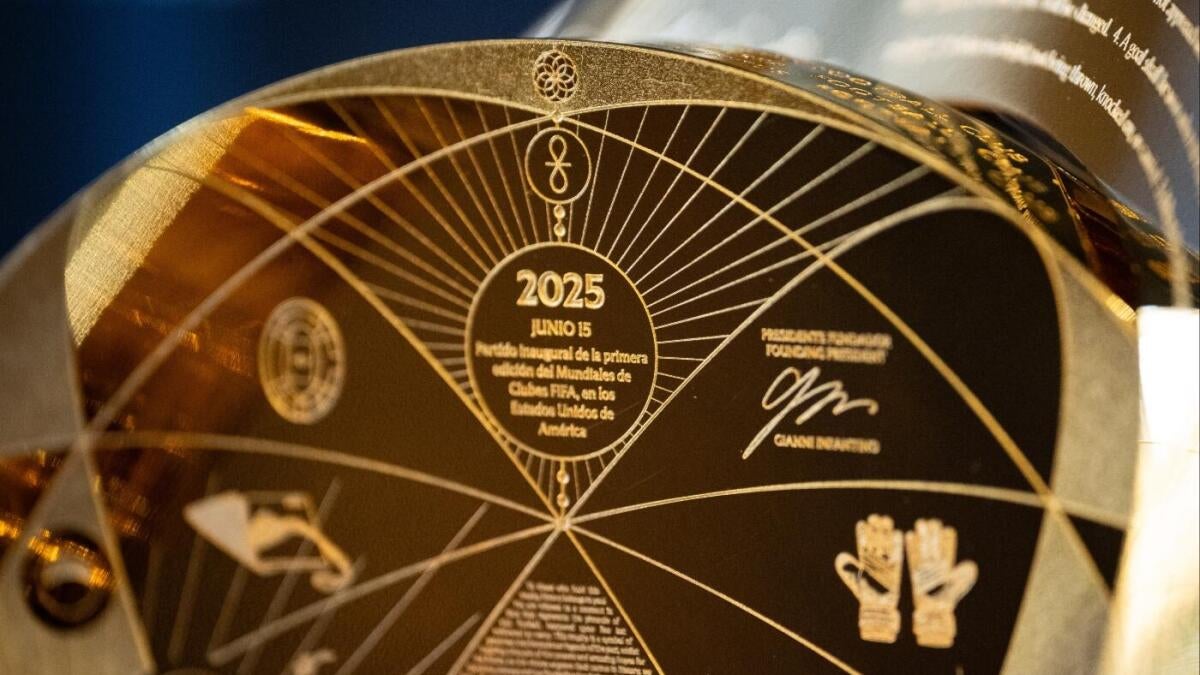The Expanded FIFA Club World Cup 2025: A Comprehensive Overview
The 2025 FIFA Club World Cup, branded as FIFA Club World Cup 25, is set to redefine the landscape of international club football. Hosted across the United States from June 14th to July 13th, this edition features an expanded format with 32 participating teams, a dramatic increase from the previous eight-team competition. This report delves into the tournament’s structure, key matchups, viewing options, and the current standings as the group stage unfolds.
A New Era for Global Club Football
The transition to a 32-team format is a pivotal moment for the tournament, signaling a broader and more inclusive vision for club football. Teams are organized into eight groups of four, mirroring the structure of the FIFA World Cup. The top two teams from each group will advance to the knockout stage, culminating in a final match to determine the champion. This expanded format aims to provide a more competitive and diverse platform, showcasing the rich tapestry of international football.
The decision to host the tournament in the United States is strategic, leveraging the country’s vast infrastructure and passionate fan base. The United States, with its diverse population and growing interest in soccer, provides an ideal backdrop for this global event. The tournament’s schedule is designed to maximize viewership across different time zones, with matches taking place throughout the day, ensuring that fans worldwide can engage with the action.
Key Matchups and Schedule Highlights
The tournament has already kicked off with several high-stakes encounters that have captivated audiences. Early highlights include:
- Manchester City vs. Wydad AC: This Group G encounter, held in Philadelphia on June 18th, saw Manchester City as heavy favorites, with pre-match predictions giving them an 87.2% chance of victory. The match lived up to expectations, with Manchester City securing a convincing win.
- Real Madrid vs. Al-Hilal: Played in Miami on June 18th, this Group H clash pitted two footballing giants against each other. Real Madrid’s experience and tactical prowess proved decisive, as they emerged victorious in a closely contested match.
- Pachuca vs. FC Salzburg: This Group G match, held in Cincinnati on June 18th, offered a compelling contest between teams from North and South America. FC Salzburg’s technical superiority shone through, securing a hard-fought victory.
- Al Ain vs. Juventus: This Group H match, played in Washington, showcased a clash of styles and experience. Juventus’ defensive solidity and clinical finishing proved too much for Al Ain, resulting in a comfortable win for the Italian side.
Further scheduled matches include Palmeiras vs. Al Ahly on June 19th, and a continued series of group stage games throughout June, leading into the knockout rounds beginning June 28th. The knockout stage promises intense competition as the top 16 teams battle for a place in the semi-finals and ultimately, the final. The final match, scheduled for July 13th, will crown the champion of the expanded FIFA Club World Cup 2025.
Navigating the Group Stage: Current Standings
As the group stage progresses, the standings are beginning to take shape. While detailed standings are still evolving, initial reports indicate a competitive landscape across all groups. Group G features Manchester City, Juventus, Wydad AC, and Al Ain FC, with Manchester City expected to be strong contenders for advancement. Group H includes Real Madrid, Al-Hilal, and other teams vying for a spot in the knockout stage.
ESPN and FIFA’s official website provide updated standings, allowing fans to track their favorite teams’ progress. The points system is standard – three points for a win, one for a draw, and zero for a loss – with goal difference serving as a tiebreaker. The competitive nature of the groups ensures that every match is crucial, with teams fighting for every point to secure their place in the knockout stage.
Where to Watch: Global Broadcast Details
Accessing the 2025 FIFA Club World Cup is readily available through various platforms, ensuring that fans worldwide can follow the tournament’s action. The availability of live streaming and television coverage is a testament to the global reach and significance of the event.
- United States: DAZN holds the exclusive broadcast rights for all 63 matches in the US, accessible via the free DAZN App on smart TVs and mobile devices. This ensures that American fans can enjoy every moment of the action.
- India: FanCode app and website are the official streaming platforms for Indian viewers, providing comprehensive coverage of all matches.
- United Kingdom: Matches are being broadcast on DAZN, making it accessible for UK fans to follow their favorite teams.
- Canada: DAZN is also the broadcaster in Canada, ensuring that Canadian fans can enjoy the tournament.
Several sports news outlets, including ESPN, CBS Sports, and Sporting News, are also providing live updates, scores, and analysis, enhancing the viewing experience for fans around the world.
Team Spotlights and Key Contenders
The expanded format has brought together a diverse range of clubs from across the globe, each with its unique strengths and playing styles. Manchester City, as the reigning UEFA Champions League winners, are widely considered among the frontrunners. Their technical prowess and tactical flexibility make them a formidable opponent for any team. Real Madrid, with its rich history and pedigree, is also a strong contender. The Spanish giants’ experience and star-studded lineup make them a threat in every match.
Other teams to watch include Juventus, representing Italian football, and Wydad AC, the champions of the CAF Champions League. The inclusion of teams from various confederations adds an element of unpredictability and excitement to the tournament. Teams like Palmeiras, Al Ahly, and Al-Hilal bring their own brand of football, ensuring that the competition is fierce and unpredictable.
The Road to the Final: Knockout Stage Anticipation
The knockout stage, commencing on June 28th, promises intense competition as the top 16 teams battle for a place in the semi-finals and ultimately, the final. The bracket will be determined by the group stage results, with the potential for thrilling matchups between teams from different continents. The knockout stage is where the true test of a team’s mettle will be revealed, as they face off against the best of the best.
The final match, scheduled for July 13th, will crown the champion of the expanded FIFA Club World Cup 2025. This match will be a culmination of the tournament’s excitement and drama, with the world watching to see which team emerges victorious.
A Tournament of Firsts and Future Implications
The 2025 FIFA Club World Cup is not merely a football tournament; it’s a landmark event in the sport’s evolution. The expanded format, the US hosting duties, and the global broadcast reach all contribute to its significance. This tournament serves as a precursor to the annual 32-team Club World Cup planned for future years, solidifying its place as a premier event on the international football calendar. The success of this edition will undoubtedly shape the future of club football competition worldwide, setting new standards and expectations for future tournaments.
A Global Celebration of Football
The FIFA Club World Cup 2025 is more than just a competition; it’s a celebration of global footballing talent. The expanded format allows for a broader representation of clubs from diverse regions, fostering a greater sense of inclusivity and competition. As the tournament progresses, fans can expect thrilling matches, unexpected upsets, and a showcase of the beautiful game at its finest. The event’s impact will extend beyond the pitch, leaving a lasting legacy on the sport and its global community.
The tournament’s success will be measured not just by the quality of football on display, but also by its ability to bring together fans from different parts of the world. The shared experience of watching and supporting their favorite teams will create a sense of unity and camaraderie, transcending borders and cultures. The FIFA Club World Cup 2025 is set to be a defining moment in the history of football, a testament to the sport’s enduring appeal and its ability to bring people together.












